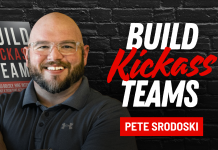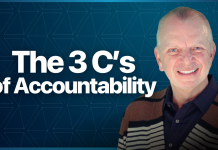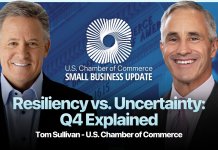We often discuss managing our time better, but what about our minds? In today’s episode of The Small Business Show, David Kadavy, Author, Speaker, and Podcaster, shares some key takeaways from his book Mind Management, Not Time Management.
According to Kadavy, creativity–not just time—drives success, especially for entrepreneurs. Great, well-thought-out ideas partnered with excellent execution amplify results. In his book, Kadavy explores practical ways to promote problem-solving through mind management, not time management.
While time management is a decent foundational concept in theory, Kadavy suggests it’s outdated. We develop the best solutions to complex problems by using our creativity to generate good ideas and make good decisions to execute effectively.
However, brilliant ideas can’t be forced. The pressure to develop something can often leave us feeling frustrated and uninspired. In his book, Kadavy explores the mind’s inner workings, the science behind creativity, and how we can use it to spark those elusive “aha” moments.
Give yourself the minimum creative dose
The “minimum creative dose” is an idea derived from medicine, in which patients are prescribed the minimum dose of a substance to effectively induce the desired effects.
Regarding creativity, Kadavy recommends prescribing yourself the “minimum dose” by quickly brainstorming ideas, jotting down notes, and stepping away. These quick, low-pressure, minimum efforts can get the creative gears moving.
After this, the key is to put it down, step away, and let it incubate.
Let your ideas incubate
The creative process has four distinct stages: preparation, incubation, illumination, and verification. During the incubation stage, ideas are left to sit so we can return to them later with a fresh perspective and more clarity.
The “minimum creative dose” philosophy leverages the incubation period. Often, we unknowingly employ the incubation technique during a process we commonly refer to as “sleeping on it.” Sleeping on it is a crucial part of idea formation, and if leveraged effectively, it can elevate the quality of creative ideas.
Understand your personal creative ebbs and flows
Creativity can be elusive, and when forced, it can often lead to feelings of frustration and defeat. However, it’s important to understand that we are humans and not computers. We are creative beings, and our creativity ebbs and flows based on our unique chemistry, lifestyles, and environments.
This self-awareness can be a powerful tool. By understanding when we’re feeling most creative, we can leverage that to our advantage, whether it’s by blocking off time for deep creative work or adjusting our working hours based on our personal creative peaks.
Understand that not all hours are created equal. However, if we can better understand when we’re feeling most creative, we can leverage that to our advantage. For instance, if you find that you’re most creative in the morning, you could block off the first few hours of your day for deep creative work. Alternatively, if you’re a night owl, you could adjust your working hours to align with your personal creative peaks.
Accept that creativity takes time
Humans are not machines that can spit out idea after idea at a rapid-fire pace. Creativity is an essential part of the productivity process, and it takes time, thought, and energy.
Kadavy suggests redefining productivity. Often, we fall into the trap of feeling like we must always be moving forward or doing something significant to feel productive. However, it’s important to realize that productivity isn’t dictated by time, nor does action define it. This redefinition can empower us to focus on the quality of our work, rather than the quantity, and feel more in control of our creative process.
Redefine your perspective
In conclusion, David Kadavy’s insights on mind management reframe our approach to creativity and productivity. Understanding that creativity drives success more than time management, we can cultivate an environment fostering innovative thinking. By redefining our understanding of productivity, we can find balance and control in our creative processes, transforming how we approach our endeavors as entrepreneurs.
"You will be amazed at how much easier every problem is to solve when you give yourself the minimum creative dose." – David Kadavy








